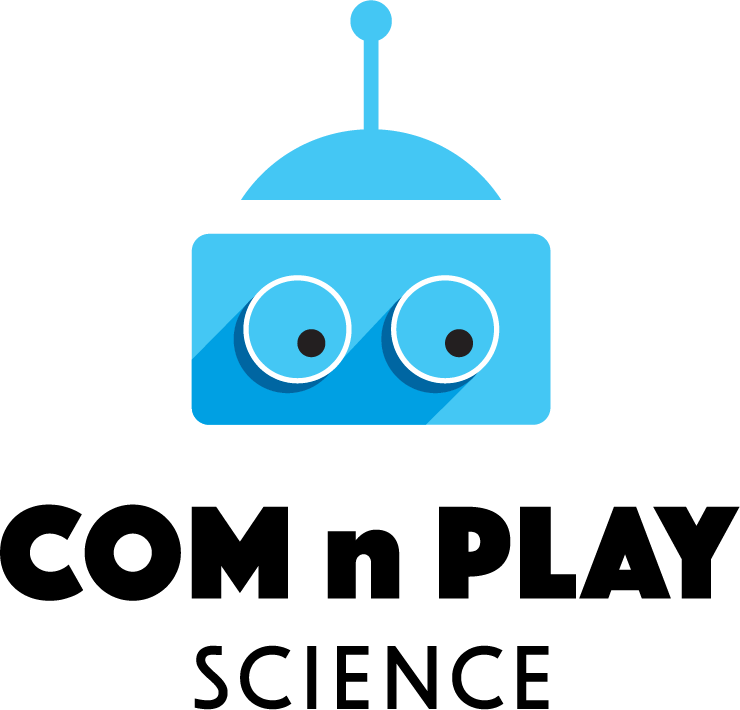1st Workshop on Digital Games for Digital Literacy and Computational Thinking CTDG2020
Hosted by the FDG2020 Conference 15-18 September 2020 Malta
Update
Submission deadline has been extended to May 31 2020.
Please note that FDG 2020 has moved to a virtual format with a reduced registration fee.
(Registration for Online Participation € 20 + VAT)
Presentations will be conducted through the Zoom webconferencing platform. Please keep in mind that if your paper is accepted to the conference, you will be required to purchase at least one ticket per accepted paper. You can find more details at the conference website. And also check the website of the workshop for updates (http://compthink.institutedigitalgames.com/).
Introduction
Digital Literacy and Computational Thinking Education enhanced through digital games has gathered substantial academic interest in recent years. Digital Literacy does not only involve functional and operational skills, and the ability to use digital media, but encompasses skills such as critical and analytical thinking for understanding, decoding, and analysing embedded ideas, values, and messages, and further considering the social and cultural context these media are situated in.
Similarly, Computational Thinking involves higher order cognitive skills such as planning, systematic thinking, algorithmic building and problem solving, with interdisciplinary implications particularly for navigating the digital world and recognising emerging phenomena such as the construction of algorithmic identities, filter bubbles, misinformation and disinformation, and bias.
The goal of this workshop is to advance knowledge, improve theoretical understanding and disseminate practices for the teaching and learning of Digital Literacy and Computational Thinking through digital games, by bringing together researchers, game designers and developers, and educators, and foster discussion about the current state of the field.
We invite contributions from within and across any discipline committed to advancing knowledge on the foundations of games: computer science and engineering, humanities and social sciences, arts and design, mathematics and natural sciences.
Papers may cover a variety of topics relevant to digital games enhanced computational thinking and digital literacy education, including but not limited to:
- Digital literacy and game based learning
- Computational thinking and digital games
- Digital Games Literacy
- Digital games and scientific thinking
- Game design for digital literacy, computational thinking, and scientific thinking
- Game development for digital literacy, computational thinking, and scientific thinking
- Case studies of implementation of game based learning for digital literacy and/or
- Computational thinking in formal education settings
- Games for digital literacy and/or computational thinking in formal and non-formal learning settings
- Hybrid and non-digital games for digital literacy and/or computational thinking
- Digital games as cultural media
- Teaching and learning about Artificial Intelligence and/or Machine Learning through digital games - AI literacy
- Theoretical implications of digital literacy and/or computational thinking through game based learning
- AI in games for computational thinking
- Learner and educator modeling and profiling
- Generative systems for enhancing computational thinking
- Computational Thinking Education by developing digital games
The workshop is supported by two H2020 projects related to computational thinking and digital literacy via games: the COMnPLAY-Science (H2020 Swafs) and the Learn to Machine Learn (Erasmus+ KA2) project.
Venue
The CTDG2020 Workshop will be hosted by the 2020 Foundation of Digital Games conference in Bugibba, Malta. The conference will run from September 15th-18th, 2020. Details on the date and time of the workshop will be made available closer to the date of the event.
Submission guidelines
We welcome submissions as either full papers (8 pages) describing novel research or short papers (4 pages) describing work in progress. Due to a tight review schedule, papers over 8 pages may be rejected without review.
Papers will receive double-blind peer reviews. All papers are guaranteed at least three reviews. All papers should anonymized and submitted in the ACM SIGCONF version of the ACM Master Template https://www.acm.org/publications/taps/word-template-workflow). Contributions should be submitted via the EasyChair site.
Important dates
| Submission deadline | |
| Author notification | |
| Camera Ready deadline |
Contact
fdg2020compthink@gmail.comSchedule
Each presenter will deliver a 10-15 minute presentation, followed by a panel discussion that would be opened up to the floor.
Workshop date: Monday 14 September 2020 15.00-19.00 CET. For local times check the uploaded schedule and select your timezone: http://fdg2020.org/schedule.php
Links to the Virtual Conference Room in Zoom will be announced before the workshop dates.
Workshop Programme
| Time Slot | Description |
|---|---|
| 15.00-15.05 | Welcome and opening of workshop |
| 15.05-15.10 | Presentation of the COMnPLAY Science project: science learning through digital games by Michail Giannakos |
| 15.10-15.15 | Presentation of the LearnML project: Artificial Intelligence and Machine Learning education for primary and secondary education through digital games by Georgios N. Yannakakis |
| 15.15-15.30 | Computational Thinking through Design Patterns in Video Games. Paper by Giulio Barbero, Marcello Gómez-Maureira and Felienne Hermans |
| 15.30-15.45 | Open and Cultural Data Games for Learning. Paper by Domna Chiotaki and Kostas Karpouzis |
| 15.45-16.00 | A Game about our Neighbourhood: A Case Study of Participatory Game Design with Pre-school Children. Paper by Iro Voulgari, Stephanie Vouvousira and Aimilia Fakou |
| 16.00-16.15 | Break |
| 16.15-16.30 | Examining Student Teachers’ Perceptions and Attitudes towards Game Based Learning. Paper by Iro Voulgari, Konstantinos Lavidas, Vassilis Komis and Stavros Athanassopoulos |
| 16.30-16.45 | Contextualizing Game Literacy; A transhistorical approach to understanding Game-Based Learning environments. Paper by Björn Berg Marklund, Rebecca Rouse and Lissa Holloway-Attaway |
| 16.45-16.55 | Roundtable discussion & QA with all the presenters and attendees |
| 16.55-18.25 | Activity* for all the participants and attendees of the workshop. |
| 18.25-18.30 | Closing of the workshop |
The 6th sense: A speculative game design workshop
A workshop designed by Dimitris Grammenos and implemented by Dimitris Grammenos & Iro Voulgari
Registration to the workshop activity is required at least 24 hours prior to the event!
If you are planning to attend the workshop activity please register here by Sunday 13 September the latest!
A short and fast-paced workshop about creating a digital game employing futuristic brain-to-brain interaction (BBI) technologies. The workshop starts with a brief introduction to speculative design and to the current status and envisioned capabilities of BBI technologies. Subsequently, through a series of engaging and fun series of design exercises, participants are guided towards conceptualizing, designing and playtesting a BBI game. To ensure a smooth experience for everyone, participants are expected to have a basic knowledge of Zoom, Google Docs and Google Slides. The main goals of the workshop are creative thinking and having fun.
Please note that for the participation to the Workshop and the Workshop Activity, registration to the FDG2020 conference is required on Eventbrite
*The 6th sense: A speculative game design workshop
A workshop designed by Dimitris Grammenos and implemented by Dimitris Grammenos & Iro Voulgari
Registration to the workshop activity is required at least 24 hours prior to the event. Registration link will be posted here.
A short and fast-paced workshop about creating a digital game employing futuristic brain-to-brain interaction (BBI) technologies. The workshop starts with a brief introduction to speculative design and to the current status and envisioned capabilities of BBI technologies. Subsequently, through a series of engaging and fun series of design exercises, participants are guided towards conceptualizing, designing and playtesting a BBI game. To ensure a smooth experience for everyone, participants are expected to have a basic knowledge of Zoom, Google Docs and Google Slides. The main goals of the workshop are creative thinking and having fun.
Organisational committee
- Iro Voulgari Institute of Digital Games, University of Malta / Department of Early Childhood Education, National and Kapodistrian University of Athens
- Michail Giannakos Department of Computer Science, NTNU
- Georgios N. Yannakakis Institute of Digital Games, University of Malta
- Dimitris Grammenos, Foundation for Research & Technology - Hellas (FORTH), Institute of Computer Science (ICS), Human-Computer Interaction Laboratory
- David Melhart (Web Chair) Institute of Digital Games, University of Malta
Programme committee
- Christos Sintoris, Human Computer Interaction Group, Electrical and Computer Engineering Department
- Elina Roinioti, Panteion University of Social and Political Studies
- Fotis Liarokapis, Masaryk University
- Iro Voulgari, Institute of Digital Games, University of Malta / Department of Early Childhood Education, National and Kapodistrian University of Athens
- Michail Giannakos, Department of Computer Science, NTNU
- Georgios N. Yannakakis, Institute of Digital Games, University of Malta
- Panagiotis Fotaris, University of Brighton
- Stefanos Xefteris, University of Western Macedonia
- Vassilis Komis, University of Patras
- Patricia Tedesco, Center for Informatics / UFPE
- Jasper Schellekens, Institute of Digital Games, Universityof Malta


